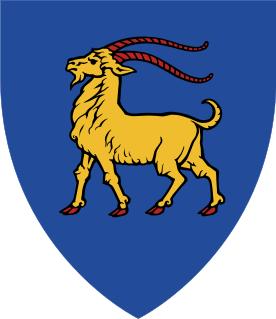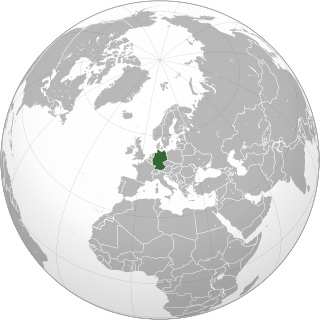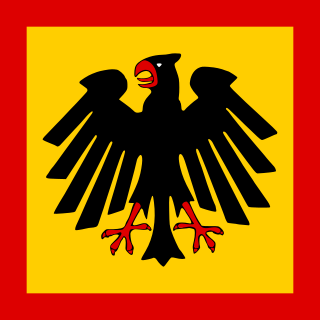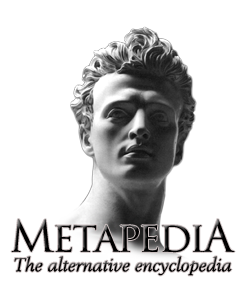Related Research Articles

Michel de Nostredame, usually Latinised as Nostradamus, was a French astrologer, physician and reputed seer, who is best known for his book Les Prophéties, a collection of 942 poetic quatrains allegedly predicting future events. The book was first published in 1555 and has rarely been out of print since his death.

The Weimar Republic is an unofficial historical designation for the German state from 1918 to 1933. The name derives from the city of Weimar, where its constitutional assembly first took place. The official name of the republic remained Deutsches Reich unchanged from 1871, because of the German tradition of substates. Although commonly translated as "German Empire", the word Reich here better translates as "realm", in that the term does not necessarily have monarchical connotations in itself. The Reich was changed from a constitutional monarchy into a republic. In English, the country was usually known simply as Germany.

Istria, formerly Histria (Latin), Ίστρια, is the largest peninsula in the Adriatic Sea. The peninsula is located at the head of the Adriatic between the Gulf of Trieste and the Kvarner Gulf. It is shared by three countries: Croatia, Slovenia, and Italy. Croatia encapsulates most of the Istrian peninsula with its Istria County.

The flag of Germany or German flag is a tricolour consisting of three equal horizontal bands displaying the national colours of Germany: black, red, and gold. The flag was first adopted as the national flag of modern Germany in 1919, during the Weimar Republic, until 1933.
The Confessing Church was a movement within German Protestantism during Nazi Germany that arose in opposition to government-sponsored efforts to unify all Protestant churches into a single pro-Nazi Protestant Reich Church.

Passau is a town in Lower Bavaria, Germany, also known as the Dreiflüssestadt because the Danube is joined there by the Inn from the south and the Ilz from the north.

Topics related to Germany include:

The Reichspräsident was the German head of state under the Weimar constitution, which was officially in force from 1919 to 1945. In English he was usually simply referred to as the President of Germany. The German title Reichspräsident literally means President of the Reich.
The Conservative Revolution, also known as the "neo-conservative" or "neo-nationalist" movement, was a German national conservative movement prominent during the Weimar Republic (1918–1933), in the years between World War I and Nazi Germany.
The term Hitler oath — also often referred to in English as simply the Soldier's Oath or Soldiers' Oath — refers to the oaths of allegiance, sworn by the officers and soldiers of the German Armed Forces and civil servants of Nazi Germany between the years 1934 and 1945. The oath pledged personal loyalty to Adolf Hitler in place of loyalty to the constitution of the country.

The prophecies of the 16th century author Nostradamus have become a ubiquitous part of the popular culture of the 20th and 21st centuries. As well as being the subject of hundreds of books, Nostradamus' life has been depicted in several films, and his life and prophecies continue to be a subject of media interest. In the Internet age, there have also been several well-known hoaxes, where quatrains in the style of Nostradamus have been circulated by e-mail. The most well-known example concerns the attack on New York City's World Trade Center on September 11, 2001.

Gaue were the de facto main administrative divisions of Nazi Germany from 1934 to 1945.

Antifaschistische Aktion, commonly known under its abbreviation Antifa, was an organisation affiliated with the Communist Party of Germany (KPD) that existed from 1932 to 1933.

Dettenheim is a municipality in the district of Karlsruhe in Baden-Württemberg in Germany.

The Danube is Europe's second longest river, after the Volga. It is located in Central and Eastern Europe.

Helene Weber was a German politician of the Christian Democratic Union ("CDU"). She had an instrumental role in founding modern German law.
Erika Cheetham was an English writer, best known for her controversial interpretations of Nostradamus' writings.

Metapedia is an online wiki-based encyclopedia which contains authoritarian far-right, white nationalist, white supremacist, anti-feminist, homophobic, Islamophobic, antisemitic, Holocaust denial, and neo-Nazi points of view. The site describes itself as focusing on European culture, art, science, philosophy, and politics. It was officially launched on 26 October 2006 with the Swedish-language edition.
National Socialism, more commonly known as Nazism, is the ideology and practices associated with the Nazi Party—officially the National Socialist German Workers' Party —in Nazi Germany, and of other far-right groups with similar ideas and aims.

Events from the year 1555 in France.
References
- Greek-English Lexicon
- Oxford Latin Dictionary
- Nostradamus, Les Propheties, 1555, 1557, 1568
- ↑ See original text (second printing) here Archived 2011-07-17 at the Wayback Machine .
- ↑ Chevignard, B.: Presages de Nostradamus, Seuil, 1999, p. 216
- ↑ See IV.68
- ↑ Hitler, pg. 43
- ↑ Hitler, Adolf (2000). Bormann, Martin. ed. Hitler's Table Talk 1941-1944. trans. Cameron, Norman; Stevens, R.H. (3rd ed.). Enigma Books. ISBN 1-929631-05-7.
- ↑ Rich, Norman (1974). Hitler's War Aims: the Establishment of the New Order. W. W. Norton & Company Inc., p. 311-313.
- ↑ http://www.historyplace.com/worldwar2/triumph/tr-rhine.htm
- ↑ https://www.thoughtco.com/understanding-max-webers-iron-cage-3026373
- ↑ http://peterbaehr.99scholars.net/uploads/9/0/5/3/9053324/peter_baehr_-_weber_and_weimar_the_reich_president_proposals.pdf
- 1 2 https://www.history.com/this-day-in-history/weimar-constitution-adopted-in-germany
- ↑ Sven Eliaeson, "Constitutional Caesarism: Weber's Politics in their German Context", in Turner, Stephen (ed) (2000). The Cambridge Companion to Weber. Cambridge: Cambridge University Press, p. 142.